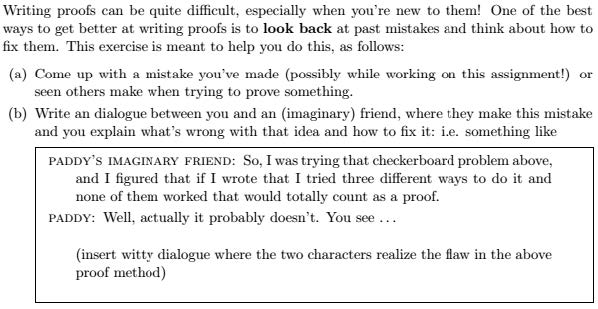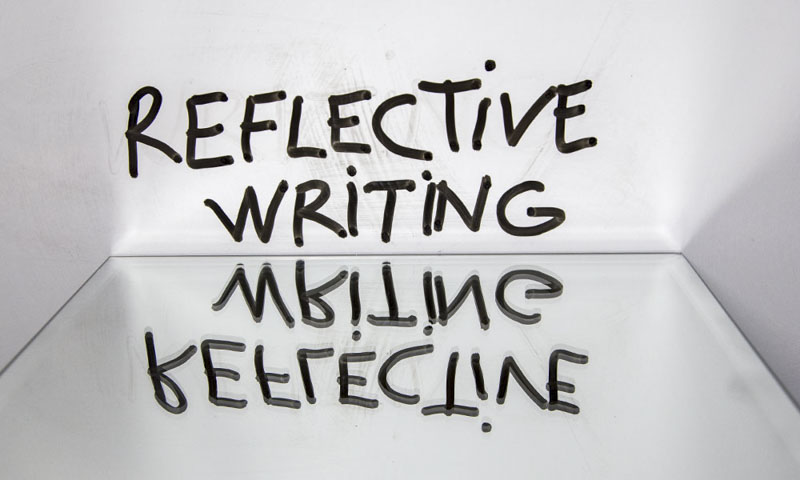A resource to help students overcome misconceptions and difficulties in mathematics
Igor’ Kontorovich from the Department of Mathematics at the University of Auckland’s Faculty of Science developed these resources that might be useful to teachers of undergraduate mathematics/STEM courses, teachers interested in adopting reflective writing tasks as cognitive method for their students. Igor built these for his Stage I students, support by the SEED Fund grants for 2017. He trialed the teaching innovation with the students of the combined secondary-school/university course, MATHS 153, Accelerated Mathematics, in 2017.
For similar projects, see: Investigative Labs and Argument-Driven Reports in Studio Physics.
Here’s an example of an exercise to trial with students:

Project background
As Igor explained in his original SEED grant application, his project was driven by two complementary needs of university teaching and learning:
“First, despite considerable attempts to account for students’ learning processes, in most cases, what is valued primarily is the outcomes. This is particularly apparent in large first-year classes, where evaluation is highly resource-demanding. For example, in mathematics courses, evaluations are rare, time-limited and based on students’ successes and failures to cope with a set of assigned problems. Accordingly, the learning that occurs beyond this evaluation setting remains undervalued.
Second, understanding of students’ misconceptions and difficulties has been included in many frameworks of teacher knowledge. University lecturers put this knowledge into their teaching practice when conveying the course content, answering students’ questions, and designing evaluations. This knowledge, however, often emerges from anecdotal evidence, personal retrospections of lecturers’ learning, and envisioning of students’ thinking. These sources are confined by the gap that exists between experienced lecturers, who in many cases are practicing scientists, and first-year students, who recently left secondary school. Accordingly, lecturers would have benefitted from systematically accumulated evidence on the obstacles that their students experience with the course content.”
To help students’ learning, Igor’ designed a set of writing activities (integrated into three homework assignments) that asked students to script fictional dialogues between teacher and student characters on challenging issues related to course mathematics.
Below is Igor’s reflection on his project.
Project reflection
A familiarity with students’ misconceptions and difficulties with particular concepts has a strategic importance for the work of teaching. School teachers and university lecturers are expected to put this familiarity to use when conveying disciplinary content, communicating with students and designing evaluations. How do they get familiar with students’ misconceptions and difficulties? In many cases, this knowledge emerges from anecdotal evidence, personal retrospections on their own learning, and speculative envisioning of students’ thinking. These sources are confined by the “built-in” gap between experienced educators, who in many cases are practicing scientists, and beginners, who often encounter the content for the first time. In other cases, teachers and lecturers become familiar with students’ misconceptions and difficulties from the instances where these are experienced. While these cases can provide insightful ideas for assisting students, they tell us little about how students overcome these struggle by themselves. Accordingly, this project had a two-fold aim:
(i) to collect data on students’ learning struggles, and
(ii) to provide students with opportunities to share their successes in overcoming their own misconceptions and difficulties. The struggles with mathematics were explored.
Seventy-four students from MATHS 153 course participated in the reported project. The particular course was chosen because its students combine university studies with secondary school, which makes their learning experience particularly challenging and valuable. As part of their regular homework assignments, the students were asked to script a fictional dialogue between student-characters on one of the course topics that the script-writers experienced as challenging (see the task formulations below).
Originally, script-writing was introduced to provide prospective teachers with an opportunity to plan for instruction and develop their professional competency in anticipation of students’ responses. Script-writing has also been used to evaluate students’ understanding of concepts and theorems. The innovation of the project is in using script-writing as a metacognitive tool that allows students to reflect on their learning experiences.
Overall, the students accumulated 156 scripts where they reflected on a rich variety of issues in relation to proving and the limit concept. Many of the issues have been already documented as challenging in prior educational research (e.g., an attempt to prove a statement through an example). The contribution of this project is in showing that students are not just capable of making mistakes but they can also notice and encapsulate them in a creative form.
The two tasks reflect the progress of the project team in task design. The task on the right is a prototype version of a more general format that can be easily adapted to other educational projects, at least in scientific disciplines. Potential adaptors may be interested to know that no special instruction was needed to the project students – they produced high-quality scripts by themselves.

